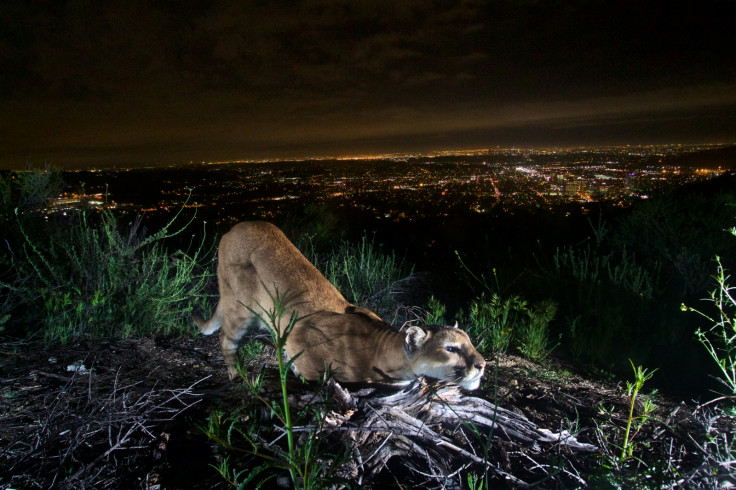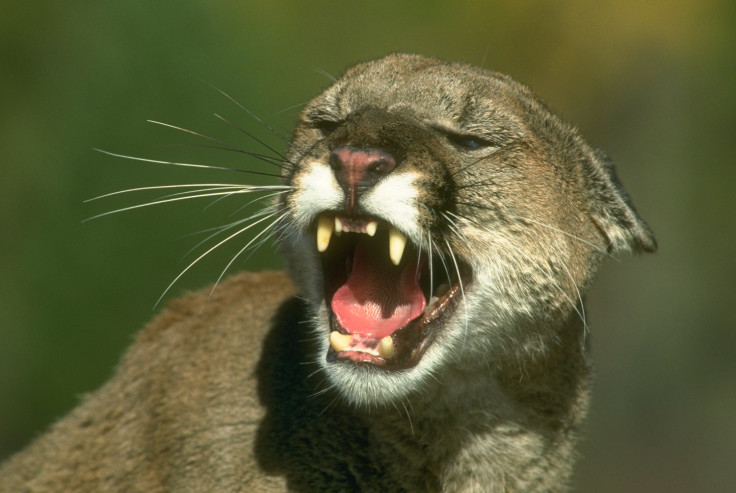There's nothing more terrifying to the mountain lion than the voice of a 'super-predator'
Mountain lions were comfortable with croaking frogs, but they would flee at the voice of a human.
There is one predator that sends mountain lions running, even if they are in the middle of feasting on a fresh kill.
Hearing the human voice is enough to make the cats drop what they're doing and run as fast as they can, according to a study published in the Proceedings of the Royal Society B. Humans are the only 'super-predator' to have this effect on the big cats.
Scientists set up a system with motion-sensitive cameras placed near the sites where mountain lions – also known as pumas – would drag their prey to eat them. When the cameras were triggered by one of the cats, it would play either the sound of a frog or a recording of human speech.
The cats weren't at all fazed by the frogs, and continued with their meal. But when they heard humans, broadcast at a typical conversational volume, they would drop it all and flee.
"The results were striking – they were definitely afraid of humans," study author Justine Smith, who conducted the work while at the University of California, Santa Cruz, said in a statement.
The team recorded a total of 29 interrupted meals involving 17 mountain lions. The cats fled in 83% of cases when they heard the human voices. Only once was a cat sufficiently startled by the frog to run away.
Not only did human voices scare the cats, but they also put them off returning to their hard-earned catch.
"We found that pumas took longer to return to their kills after hearing people, and subsequently reduced their feeding on kills by about half," said Smith, who now works at UC Berkeley.
As a result, mountain lions have been shown to increase their kill rates by more than a third, which could be a way to compensate for catches abandoned through fear.

The finding has implications for the species' survival as towns and roads encroach ever further into the cats' habitats. All of the cats studied in this research are threatened by human developments within their range.
"Fear is the mechanism behind an ecological cascade that goes from humans to pumas to increased puma predation on deer," said Chris Wilmers, also of UC Santa Cruz and a study author.
"We're seeing that human disturbance – beyond hunting – may alter the ecological role of large carnivores. As we encroach on lion habitat, our presence will likely affect the link between top predators and their prey."

© Copyright IBTimes 2025. All rights reserved.






















